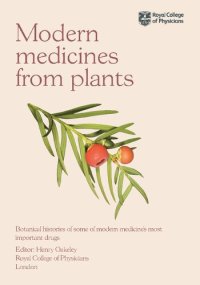
Ebook: Modern Medicines from Plants: Botanical histories of some of modern medicine’s most important drugs
Author: Henry Oakeley (editor)
- Genre: Medicine // Natural Medicine
- Year: 2023
- Publisher: CRC Press
- City: London
- Language: English
- pdf
The full colour, beautifully illustrated Modern Medicines from Plants: Botanical histories of some of modern medicine’s most important drugs features information on plants from which we obtain modern prescription medicines. It outlines their historical uses as herbal medicines in the past two millennia, using primary sources, and describes how extracts from them, and their semisynthetic and synthetic derivatives, were developed to be today’s therapeutic drugs and diagnostic chemicals. This book describes medicinal plants and their habitats, the diseases that their medicines treat, and the science of how they work.
This amazing and unique book is a wonderful read for those with an interest in both herbal and prescription medicines. Written with authority by physicians and gardeners at the Garden of Medicinal Plants at the Royal College of Physicians, London, chapters detail the history and modern scientific research on plants and their medicines. It is very useful to physicians, pharmacists, herbalists, historians and gardeners, bringing together information from every discipline to make it a work of interest as well as reference.
Features
· Written for people interested in medicinal plants, where medicines come from, and how they treat our diseases.
· Contains information on 50 plants, mostly growing in the medicinal garden of the Royal College of Physicians in London, describing how they became the source of modern pharmaceutical medicines.
· Describes medicinal uses of plants in Classical Greece as written by Dioscorides, Pliny and Galen, through the flowering of Arabic medicine by physicians such as Paulus Aegineta, Mesue and Avicenna to the 12th to 14th century compilations of Serapion and Sylvaticus and the European Renaissance of Peter Treveris, William Turner, Leonard Fuchs, Pietro Mattioli, John Gerarde, John Parkinson, Nicholas Culpeper, and many others to the pharmacopoeias of the 16th century to the present day.
· Fully referenced including a glossary for explanation of technical terms.